In the dynamic pest control industry of Texas, protecting your business with comprehensive insurance coverage is essential. From chemical exposure risks to property damage concerns, pest control operators face unique challenges that require specialized insurance protection.
Understanding Pest Control Business Insurance
Operating a pest control business in Texas involves various risks that standard business insurance policies may not adequately cover. The specialized nature of pest control services, combined with Texas-specific regulations and environmental factors, necessitates tailored insurance coverage.
Why Specialized Coverage Matters
Pest control businesses face distinct operational risks:
- Exposure to chemicals and pesticides during treatment procedures
- Potential property damage while performing services
- Environmental concerns related to chemical applications
- Health and safety risks for technicians and clients
- Vehicle accidents during service calls
- Equipment damage or theft
Essential Insurance Coverage Types
General Liability Insurance
This foundational coverage protects against common business risks:
- Third-party bodily injury claims from chemical exposure
- Property damage during pest control operations
- Personal and advertising injury protection
- Coverage for completed operations
- Legal defense costs and settlements
- Slips and falls on your business premises
Professional Liability Insurance
Also known as Errors and Omissions (E&O) insurance, this coverage protects against:
- Claims of ineffective pest control treatment
- Mistakes in service delivery
- Failure to eliminate infestations
- Professional advice-related claims
- Contract performance disputes
- Negligence allegations
Commercial Auto Insurance
For your service fleet and vehicles:
- Protection for company-owned vehicles
- Coverage for accidents during service calls
- Equipment and supplies transported in vehicles
- Liability protection for third-party injuries
- Compliance with Texas state requirements
- Coverage for employee-driven vehicles
Workers’ Compensation Insurance
Protecting your employees with:
- Medical expenses for work-related injuries
- Lost wage replacement during recovery
- Occupational illness coverage
- Protection against employee lawsuits
- Rehabilitation costs
- Death benefits
Specialized Coverage Options
Environmental Liability Insurance
Protecting against environmental risks:
- Chemical spill cleanup costs
- Contamination-related claims
- Environmental damage remediation
- Regulatory compliance issues
- Third-party bodily injury from chemical exposure
- Property damage from chemical applications
Equipment and Tools Coverage
Protecting your business assets:
- Spraying equipment and tools
- Chemical storage units
- Safety equipment
- Diagnostic tools
- Mobile technology devices
- Inventory protection
Texas-Specific Considerations
Regulatory Compliance
Meeting state requirements:
- Texas Department of Agriculture licensing
- State-mandated insurance minimums
- Chemical application regulations
- Safety protocol compliance
- Record-keeping requirements
- Continuing education documentation
Climate-Related Risks
Addressing Texas environmental factors:
- Heat-related equipment damage
- Chemical storage in extreme temperatures
- Weather impact on treatment effectiveness
- Seasonal pest activity variations
- Storm-related service interruptions
- Climate-specific treatment protocols
Cost Factors for Pest Control Insurance
Several factors influence your premium rates:
- Years in business
- Number of employees
- Services offered
- Coverage limits
- Claims history
- Service area size
- Annual revenue
- Equipment value
- Vehicle fleet size
Choosing the Right Insurance Provider
Key Selection Criteria
Consider these factors when selecting coverage:
- Experience with Texas pest control businesses
- Understanding of industry-specific risks
- Claims handling efficiency
- Financial stability ratings
- Customer service quality
- Risk management resources
- Payment flexibility
Required Documentation
Prepare these documents for coverage:
- Business licenses and certifications
- Employee training records
- Vehicle and equipment inventories
- Safety protocols
- Chemical handling procedures
- Claims history
- Financial statements
Risk Management Strategies
Safety Protocols
Implementing comprehensive safety measures:
- Regular safety training programs
- Proper chemical handling procedures
- Equipment maintenance schedules
- Personal protective equipment protocols
- Emergency response plans
- Documentation systems
Best Practices
Maintaining professional standards:
- Regular employee certification updates
- Proper chemical storage procedures
- Vehicle maintenance logs
- Customer communication protocols
- Service documentation procedures
- Quality control measures
Claims Process Management
Filing a Claim
Steps to follow when incidents occur:
- Document the incident immediately
- Gather witness statements
- Take photographs of any damage
- Report to insurance provider promptly
- Maintain detailed records
- Follow provider instructions carefully
Minimizing Claims Risk
Preventive measures include:
- Regular staff training updates
- Equipment maintenance checks
- Safety protocol reviews
- Customer communication documentation
- Service quality assessments
- Risk assessment procedures
Growing Your Protected Business
Benefits of Comprehensive Coverage
Strong insurance protection enables:
- Business expansion confidence
- Client trust building
- Employee retention
- Competitive advantage
- Financial stability
- Peace of mind
Scaling Your Coverage
Adjusting protection as you grow:
- Regular coverage reviews
- Policy limit adjustments
- New service area considerations
- Equipment coverage updates
- Employee coverage expansion
- Risk assessment updates
Conclusion
Running a successful pest control business in Texas requires comprehensive insurance protection that addresses industry-specific risks while ensuring compliance with state regulations. The right insurance package not only protects your business assets but also provides peace of mind to you, your employees, and your customers.
Taking the time to understand and secure appropriate coverage is crucial for long-term success in the competitive Texas pest control market. Regular review and updates of your insurance coverage ensure your business remains protected as it grows and evolves.
Contact our experienced insurance professionals who understand the unique needs of Texas pest control businesses. We can help you develop a comprehensive insurance package that provides the protection your business needs while maintaining cost-effectiveness and compliance with state requirements.
Remember, proper insurance coverage is an investment in your business’s future, protecting your assets, employees, and reputation in the Texas pest control industry. Let us help you secure the right coverage to support your business growth and success.

